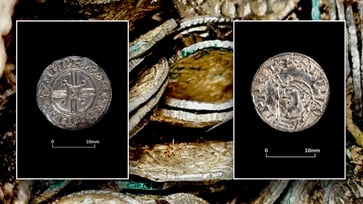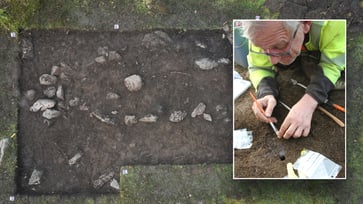Rare artifact discovered at Jerusalem holy site with mysterious inscription
According to Christian tradition, the Last Supper is believed to have taken place on Mount Zion.
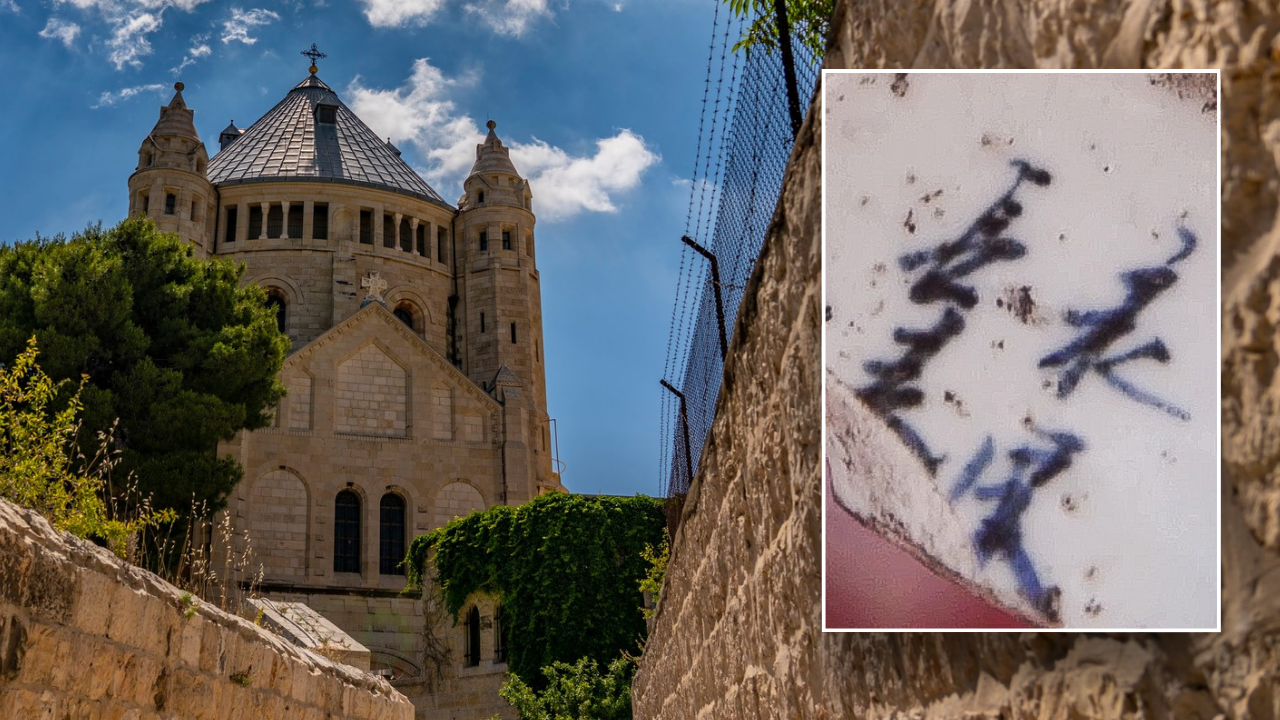
The IAA recently announced that archaeologists have unearthed the oldest known Chinese inscription at Mount Zion's holy site.
The porcelain bowl, inscribed with a message about the relationship between Israel and China, was unearthed during a joint excavation between the IAA and the Protestant Institute of Archaeology.
An excavator unearthed a 16th-century porcelain bowl with the inscription "Forever we will guard the eternal spring" in the dirt.
"During routine preparations for the upcoming excavation season, an archaeologist at the Israel Antiquities Authority, Michael Chernin, discovered a colorful object protruding from the dirt that had been removed. Upon pulling it out and washing it, he realized that it contained an inscription on its base."

The porcelain bowl discovered during excavation was not from the Second Temple period to the Byzantine era, as reported by the IAA.
The bowl, made during the Ming Dynasty (1520-1570), symbolizes the trade ties between Imperial China and the Ottoman Empire. This is the first bowl discovered in Israel with a Chinese inscription, although other ancient Chinese pottery has been unearthed.

"The Ming Dynasty annals record that approximately 20 official Ottoman delegations visited the imperial court in Beijing during the 15th-17th centuries. Additionally, travel books from merchants of this era describe the trade relations between these empires."
"From 1541, Ma Li's Chinese writings describe the presence of Chinese merchants in Lebanese coastal cities, including Beirut and Tripoli. The scholar also notes the importance of other cities in the region, such as Jerusalem, Cairo, and Aleppo."

The Last Supper is traditionally believed to have taken place in the Upper Room, or Cenacle, on Mount Zion, which is symbolic of God's promises as described in the New Testament.
During King David's reign, the Ark of the Covenant was kept at Mount Zion, which is also religiously significant to Jews.

"Evidence of trade relations between merchants in the Land of Israel and the Far East can be found even in earlier periods, such as various spices. However, it is particularly intriguing to discover these relations in the form of an actual inscription, written in the Chinese language, and in an unexpected location - on Mount Zion in Jerusalem."
lifestyle
You might also like
- Post-inauguration, the surprising truths about DC travel costs.
- Melania and Donald Trump celebrate their 20th wedding anniversary: View the images.
- John Schneider, known for his role in 'Dukes of Hazzard,' remains steadfast in his belief: "God has a plan."
- Notre Dame football coach and Catholic convert is 'not shy about' the importance of faith.
- Trump confidant and unofficial spiritual advisor: "God is granting America another opportunity"

